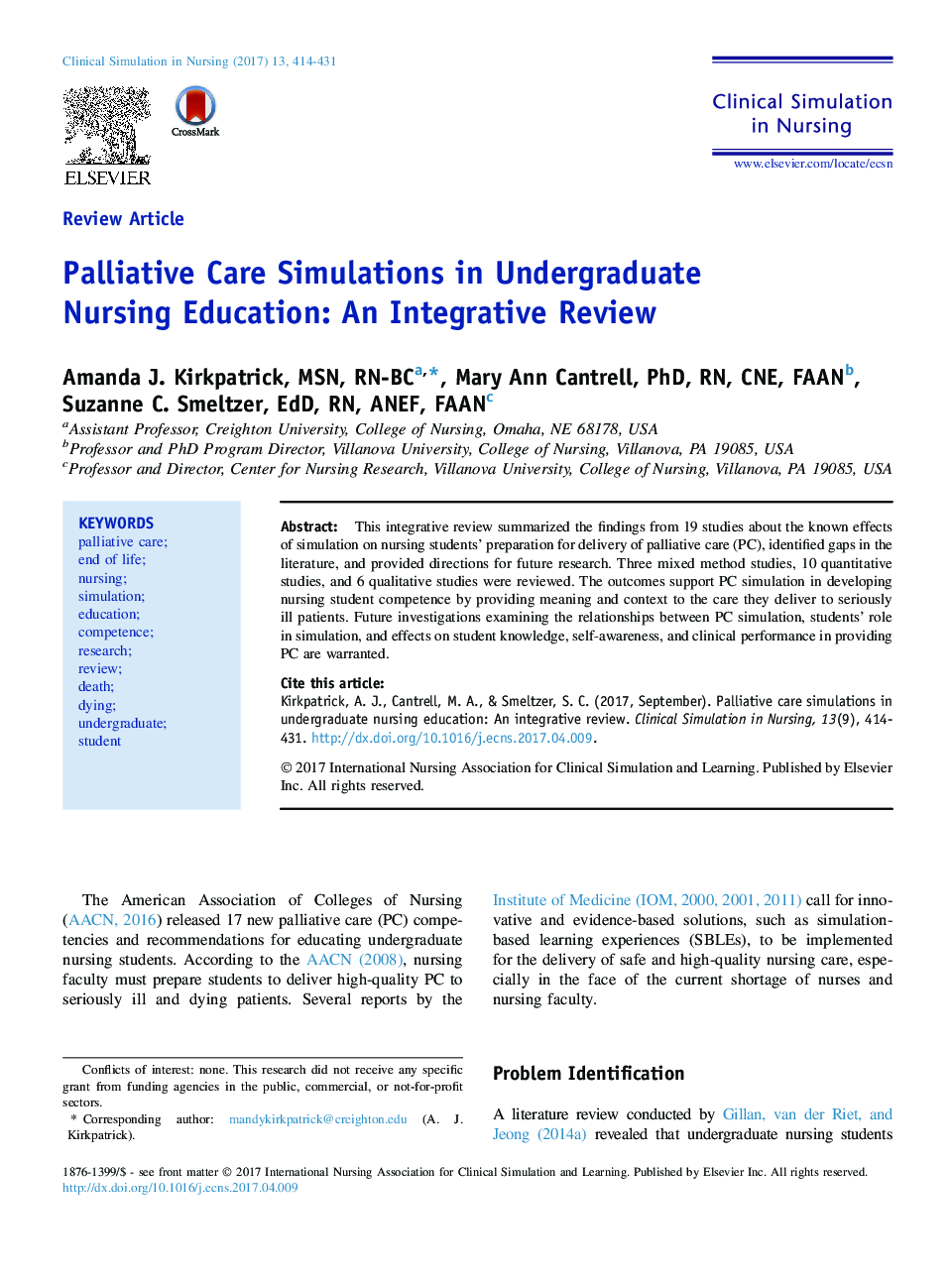| Article ID | Journal | Published Year | Pages | File Type |
|---|---|---|---|---|
| 5567477 | Clinical Simulation in Nursing | 2017 | 18 Pages |
â¢Nursing graduates must be competent and confident in the delivery of palliative care (PC).â¢Students view delivery of PC and end-of-life care as anxiety provoking and stressful.â¢Evidence shows PC simulation benefits student confidence, knowledge, and satisfaction.â¢Inclusion of actors and spiritual, cultural, and ethical aspects make simulations more realistic.â¢Study limitations and research gaps indicate the need for future PC simulation studies.
This integrative review summarized the findings from 19 studies about the known effects of simulation on nursing students' preparation for delivery of palliative care (PC), identified gaps in the literature, and provided directions for future research. Three mixed method studies, 10 quantitative studies, and 6 qualitative studies were reviewed. The outcomes support PC simulation in developing nursing student competence by providing meaning and context to the care they deliver to seriously ill patients. Future investigations examining the relationships between PC simulation, students' role in simulation, and effects on student knowledge, self-awareness, and clinical performance in providing PC are warranted.
